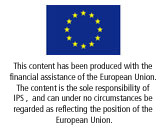By Busani Bafana
RIO DE JANEIRO, Jun 17 (TerraViva) Integrated landscape systems that promote cooperation over competition can end global conflicts over water, energy and land use stemming from how the world produces food, says a new global study.
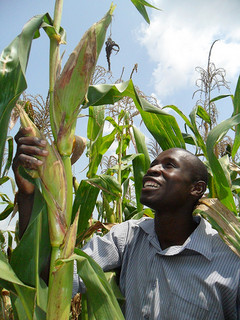
Developing countries will have to increase their food production by 100 percent to feed an additional two billion mouths in 2050. Credit: Isaiah Esipisu/IPS
“Today, the world is stuck in a vicious cycle that locks farmers, governments, companies and communities in the pursuit of short-term, narrowly defined solutions to food, energy and water conflicts as they emerge,” said Sara Scherr, one of the key authors of the report, “Landscapes for People, Food, and Nature: A Vision and the Evidence” launched in Washington this week.
Scherr said blinkered crisis management approaches to food production meant that solving one problem often worsened another because of the complex, changing environment in which food is now produced.
With a predicted drop in crop yields and water availability as a result of climate change, developing countries in particular will have to increase their food production by 100 percent to feed an additional two billion mouths in 2050.
“Whole landscape” is a umbrella term referring to a large collection of approaches to land and water management that use multi-sector, stakeholder negotiations to increase the provision of food, ecosystem services and social welfare, rather than win-lose “trade-offs” between them.
According to a newly launched global coalition of research, advocacy and multilateral organisations known as the Landscapes for People, Food and Nature Initiative, such as approach also helps restore degraded land and water resources.
The coalition identified more than 300 landscape-oriented initiatives where alliances have been built among farmers, ranchers, pastoralists, tourism operators, forest owners, conservation managers and private industry.
Data from 23 landscape initiatives outlined in the study shows major impacts in agricultural production, improved ecosystems, household and community benefits in Costa Rica, India, Kenya, China and Africa.
Scherr, also president and CEO of EcoAgriculture Partners, a co-organiser of the Landscapes for People, Food and Nature Initiative, told TerraViva that the study was developed from a global review over one year of landscape systems in Latin America, Africa and Asia. The ongoing study will also review systems in United States, Australia and Europe.
While advocating for the scaling up of whole landscape approaches to ending conflicts over water, energy and land, Scherr said the system has the potential to unlock creative solutions in land disputes.
“I believe that this approach is particularly relevant in areas where there are sensitive land issues, as it provides space to develop more creative solutions that address multiple users’ needs. In areas of very poor governance, the approach may not work well except at local levels,” said Scherr.
Stephen Muchiri, chief executive officer of the Eastern Africa Farmers Federation, said the whole landscape approach sought to take down the fences – in some cases both literal and figurative – that divide up the land and the groups that manage land and water.
However, Scherr told TerraViva that current investment mechanisms, national sector policies, and land tenure policies did not support inter-sectoral, stakeholder-negotiated solutions and often got in the way of action.
“Our ‘Call to Action’ and our strategy for the Initiative are to directly mobilise new financing mechanisms, supportive national policies, business engagement in landscape initiatives, research and technical support to generate whole landscape outcomes,” she said.
“We need an integrated strategy for land and water that fully incorporates the range of values of these resources for food security, energy, water, biodiversity, climate change, and the whole landscape approach provides a strategic framework for discussion and for developing action plans.”
Speaking about the launch of the system, Achim Steiner, executive director of the United Nations Environment Programme (UNEP), said the world had a voracious appetite for food, water and energy, and warned that a narrow focus on sector-specific solutions will ultimately lead to disaster.
“We must not miss the opportunity of Rio+20 to establish broad, integrated approaches that serve multiple interests,” said Steiner.



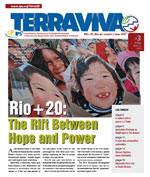
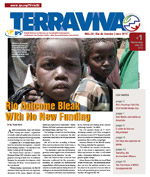
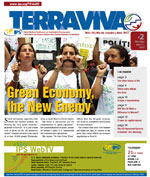

 Add to Google
Add to Google




